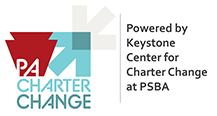House Education Committee to Consider Significantly Flawed House Bill 1685
For Immediate Release
Media contact for the Keystone Center for Charter Change:
Lawrence A. Feinberg, Director
Larry.Feinberg@PSBA.org
(717) 506-2450 ext. 3420
Mechanicsburg, PA (September 27, 2021) – The Keystone Center for Charter Change opposes House Bill 1685, which the House Education Committee is scheduled to vote on today. After reviewing the legislation, the Keystone Center for Charter Change has raised numerous significant concerns related to its provisions.
HB 1685 would allow significant charter school expansion, with no public oversight and no consideration given to the quality of the charter school’s educational programs. Further, the bill provides no reform to the manner in which funding is calculated for charter schools, which public school leaders across the state have been calling for over many years. In fact, the proposal would exacerbate the flaws in the charter school funding formula, which result in overpayments to charter schools.
“There are big loopholes in HB 1685 that will allow charter schools to expand enrollments with no oversight,” said the Keystone Center for Charter Change’s director, Lawrence A. Feinberg. He went on to add, “Among other flaws, the bill gives blanket authority to brick-and-mortar charter schools to offer online education with no limitations on enrollment of students across the state, in a similar manner to cyber charter schools. Feinberg explained further, “It would also allow charter schools to make significant changes to their written charter without going through any approval process with their authorizer. Specifically, a charter school could change its name and its educational programs, curriculum and school design if such changes do not fundamentally change the charter school’s ‘approved educational approach’, though it is not made clear how this would be measured, and all this without public oversight or an appropriate amendment process,” he concluded.
Issues related to HB 1685 include, but are not limited to:
- Charter schools may expand locations without authorizer approval or proof of academic quality.
- Charter schools may operate at more than on location within the authorizing district without the approval of that district, causing significant logistical and financial implications.
- The charter amendment process is overly broad and non-specific, only requiring authorizer approval for “material changes” with no guidance on what “material changes” might include, and significant changes to a charter school may be made unilaterally without obtaining authorizer approval through the amendment process.
- Standards for creating a multiple charter organizations and standards for showing community support for a charter school are reduced or eliminated.
- The ability for an authorizer to request information during a charter school application process is severely limited.
- Expanded charter terms without regard for the quality of a charter school’s educational programs or performance.
House Bill 1685 could be moved out of committee today and sent to the House floor.
###
The mission of the Keystone Center for Charter Change at PSBA (Pennsylvania School Boards Association) is to build support for the development and enactment of legislation that would provide regulatory and funding changes to Pennsylvania’s 23-year-old Charter School Law. We advocate for fiscal and regulatory reforms that level the playing field and treat all public schools fairly.
The center is managed by a dedicated director and guided by the input of an advisory board and participants of the center’s residency program. The center is operated by PSBA and funded through a grant from the Pennsylvania Public Education Foundation (PaPEF).
